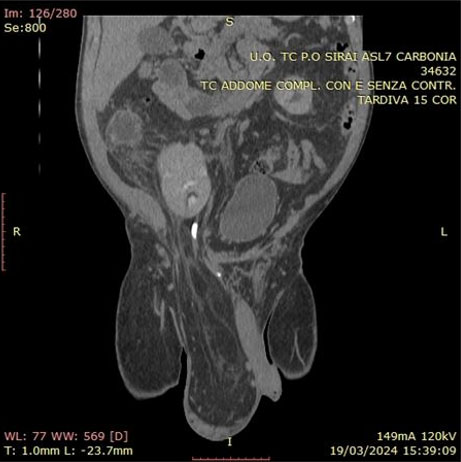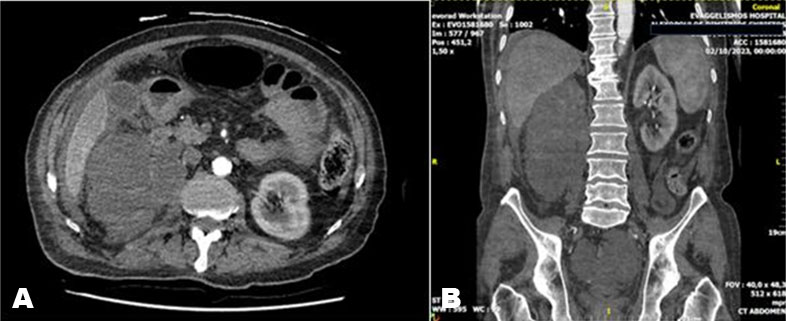 |
Case Report
Three incidences of bladder perforation in a single patient: A case report
1 Service Registrar, Department of Urology,Royal Perth Hospital, Perth, Western Australia, Australia
2 Consultant Urologist, Department of Urology, Royal Perth Hospital, Perth, Western Australia, Australia
Address correspondence to:
Katie L Valentine
Service Registrar, Department of Urology,Royal Perth Hospital, Perth, Western Australia
Australia
Message to Corresponding Author
Article ID: 100054Z15KV2025
Access full text article on other devices

Access PDF of article on other devices

How to cite this article
Valentine KL, Yuminaga Y. Three incidences of bladder perforation in a single patient: A case report. J Case Rep Images Urol 2025;10(2):24–28.ABSTRACT
Introduction: Bladder perforation is an uncommon condition, most often arising secondary to trauma but also known to occur spontaneously or iatrogenically. We present the case of a young gentleman who has attended three times over the course of 17 months with bladder perforation secondary to indwelling catheter use (IDC).
Case Report: The patient is a 25-year-old man who obtained a T12 spinal cord injury in July 2020 resulting in neurogenic bladder managed with self-exchanged indwelling catheter (IDC). He presented to the emergency department in April 2023 and was diagnosed with appendicitis, subsequently found at laparoscopy to have intraperitoneal bladder perforation. He presented similarly one year later with perforation at the same site, laparoscopically repaired. Lastly, he presented approximately four months following this with contained perforation, conservatively managed.
Conclusion: Bladder perforation secondary to indwelling catheter use is uncommon, and may present in non-specific and repeated ways, especially in patients who have spinal injury. A wide differential diagnosis is required when patients such as these present generally unwell, or with abdominal pain.
Keywords: Bladder perforation, Catheter, Intraperitoneal perforation, Spinal injury
SUPPORTING INFORMATION
Acknowledgments
Many thanks to the patient for his consent to proceed with the case report, and his assistance with clarifying the details.
Author ContributionsKatie L Valentine - Conception of the work, Design of the work, Acquisition of data, Analysis of data, Drafting the work, Revising the work critically for important intellectual content, Final approval of the version to be published, Agree to be accountable for all aspects of the work in ensuring that questions related to the accuracy or integrity of any part of the work are appropriately investigated and resolved.
Yuigi Yuminaga - Conception of the work, Design of the work, Acquisition of data, Analysis of data, Drafting the work, Revising the work critically for important intellectual content, Final approval of the version to be published, Agree to be accountable for all aspects of the work in ensuring that questions related to the accuracy or integrity of any part of the work are appropriately investigated and resolved.
Guaranter of SubmissionThe corresponding author is the guarantor of submission.
Source of SupportNone
Consent StatementWritten informed consent was obtained from the patient for publication of this article.
Data AvailabilityAll relevant data are within the paper and its Supporting Information files.
Conflict of InterestAuthors declare no conflict of interest.
Copyright© 2025 Katie L Valentine et al. This article is distributed under the terms of Creative Commons Attribution License which permits unrestricted use, distribution and reproduction in any medium provided the original author(s) and original publisher are properly credited. Please see the copyright policy on the journal website for more information.





